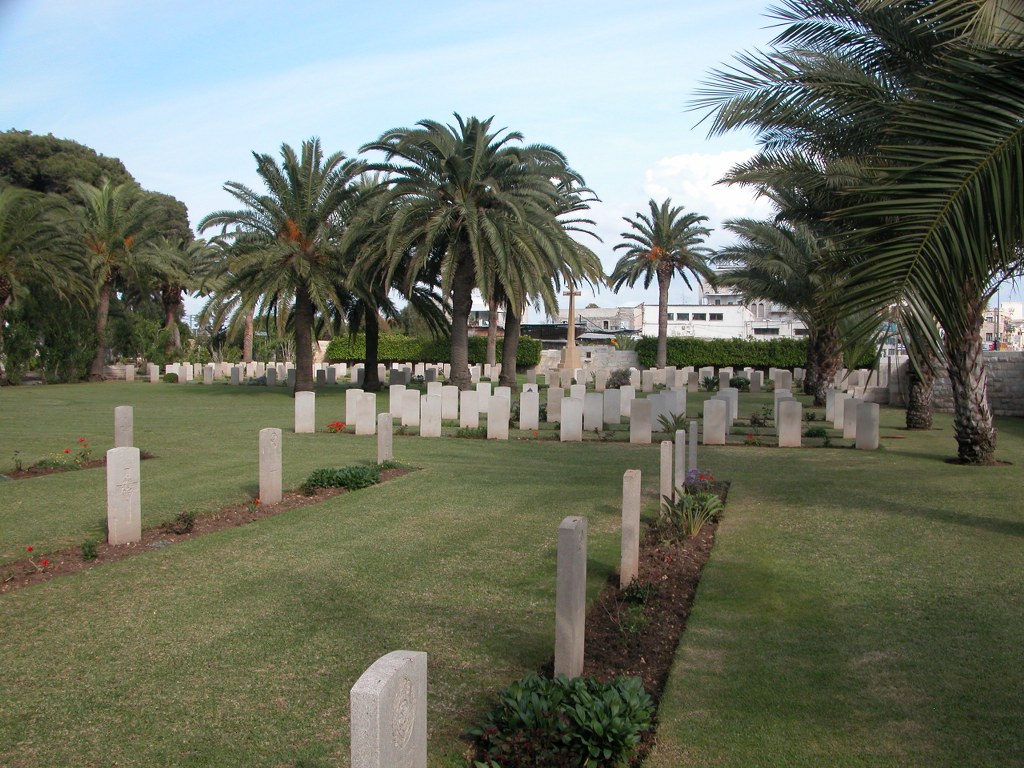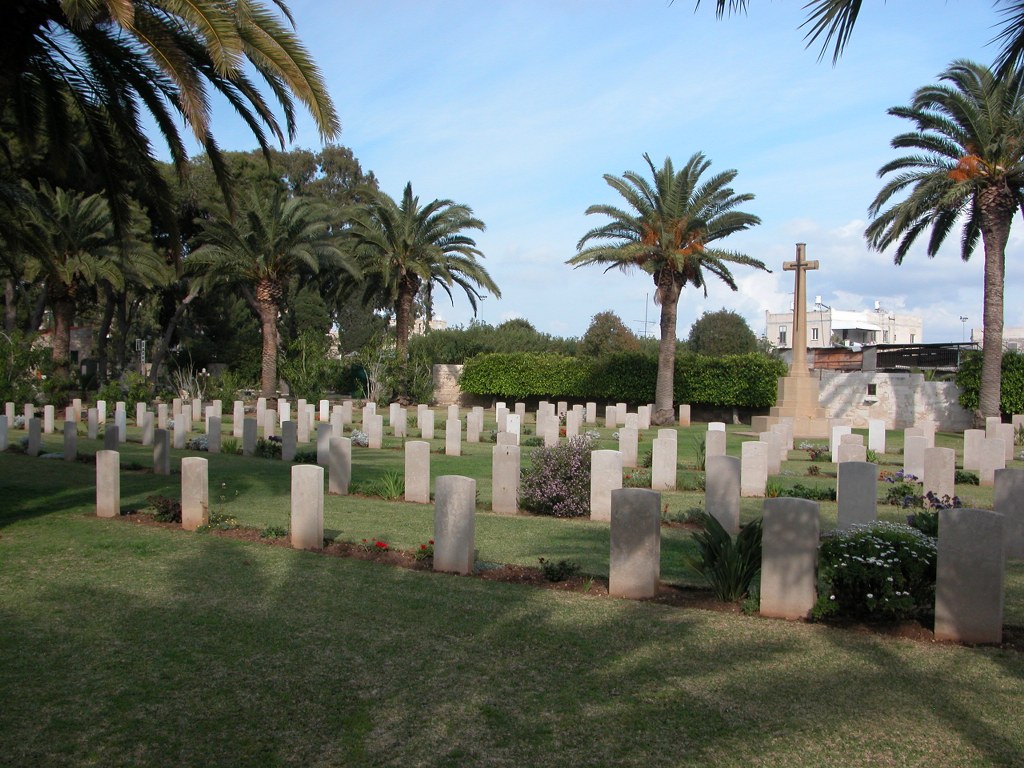Haifa War Cemetery
- Country Israel and Palestine (including Gaza)
- Total identified casualties 255 Find these casualties
- Identified casualties from First & Second World War
- GPS Coordinates Latitude: 32.82777, Longitude: 34.98559
Historical Note
 Not all the graves within this cemetery were permanently marked with headstones. A total of 110 Egyptian Labour Corps personnel whose graves were unknown are commemorated numerically on a screen wall. Of these, 23 casualties were identified by name, and these names were included in the printed cemetery register. Work is now underway to ensure these men are appropriately commemorated.
Not all the graves within this cemetery were permanently marked with headstones. A total of 110 Egyptian Labour Corps personnel whose graves were unknown are commemorated numerically on a screen wall. Of these, 23 casualties were identified by name, and these names were included in the printed cemetery register. Work is now underway to ensure these men are appropriately commemorated.
You can find more information about historical inequalities in commemoration in our Special Committee’s report.
Location information
Haifa War Cemetery lies 3 kilometres from the central railway station on the Tel-Aviv road. From the south on Highway 4, the cemetery is on the left hand side, just before shops and Haifa docks. 300 metres after the cemetery turn left into Dugit Street. Turn left at the traffic lights and the cemetery will now be on the right hand side, 300 metres after the lights.
Visiting information
The Cemetery is permanently open and may be visited at any time.
Wheelchair access to the cemetery is possible via the main entrance. For further information and enquiries please contact enquiries@cwgc.org
History information
Haifa was captured by the Mysore and Jodhpur Lancers on 23 September 1918 and the 33rd Combined Clearing Hospital was moved to the town on the 15 October. Haifa War Cemetery, which was originally part of the German cemetery, was used mainly for hospital burials, but some graves were brought in from the battlefields.
Haifa was of great strategic importance during the Second World War because of its deep water harbour and airfield. It was also the terminus of the railway line from Egypt and of the Kirkuk-Haifa oil pipeline. Haifa became one of the main supply bases and arms depots serving the Middle East forces and a large naval depot was established at Haifa Bay. The cemetery was again used during the early part of the war until the new war cemetery at Khayat Beach was opened.
Haifa War Cemetery now contains 305 Commonwealth burials of the First World War, 86 of them unidentified. Second World War burials number 36.



